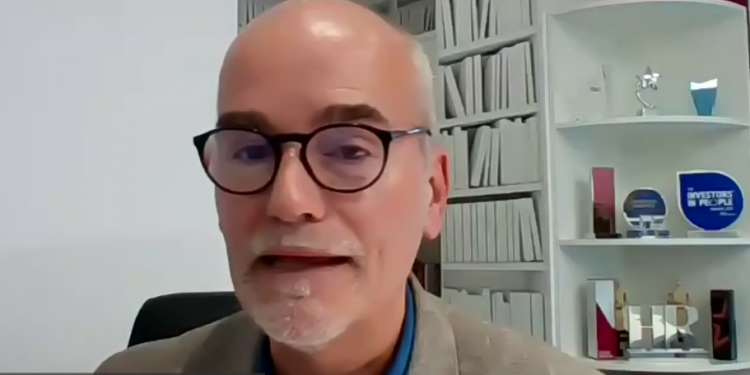The Financial Services Compensation Scheme’s ‘outcome over output’ approach to work has really paid off during the pandemic, according to chief people officer David Blackburn.
Addressing delegates at the recent CIPD London – Fellow and Senior Practitioners Network insights session organised by the Chartered Institute of Personnel and Development and London HR Connection, Blackburn revealed that back in 2017 the organisation asked itself whether any of its roles could be carried out without an element of flexibility.
The organisation found all of its roles were flexible and so set about developing flexible working principles around worker outcomes over outputs.
These principles include the idea that flexible working is not a problem you have to solve, that working flexibly is a benefit that you need to embrace, that a high trust culture is required to make the approach work, that you need the right technology in place and that you need to evolve performance management to make it a success.
But Blackburn explained that when the pandemic hit, these principles needed to evolve and so after consulting employees, the organisation developed its Your Day, Your Way model. This is comprised of three elements – where you want to work, when you want to work and what you want to wear, with workers agreeing their approach to that particular day with their team.
Blackburn gave the example of CEO, Caroline Rainbird, who prefers to come to the office early in the morning to carry out her face to face meetings before returning home at lunchtime and working late into afternoon.
While workers are compelled to work 40% of their time in the office, Blackburn explains this does not necessarily mean two days in the office as working hours can be spread over a fortnight. For workers who aren’t based in London, this could mean they can do all of their physical meetings in one block, Blackburn added.
“Smarter working, which we’ve chosen to call it, is not simply about the what, when and the where, it’s also about the environment that you provide, the way in which we lead our dispersed, hybrid teams, the way in which we deliver learning, how we think about our award strategy, how we empower teams to be at their most effective and how we use technology.
“Our smarter working principles are that we need to think about the activity, the outcome that we need to deliver and where is the most productive environment in which to do it.
“Is that at home? Is that in the office? Is that on the phone? Is it in the garden? Is it anywhere else?”
And though the approach has gone down well with employees, the organisation itself has reaped the rewards from being an early adopter of flexible working, Blackburn added.
“What that means is actually we were very lucky in 2020. We were able to mobilise very seamlessly as an organisation because the technology and the approach and the thinking was already in place which meant we had not had to furlough any employees.
“We have not had to make any employees redundant nor have we seen a loss of productivity against a backdrop of the highest number of claims volumes since our creation in 2001.
“In the last year we processed more claims for customers from financial products and institutions that had failed than we did even in the financial crisis of 2008/09.”






